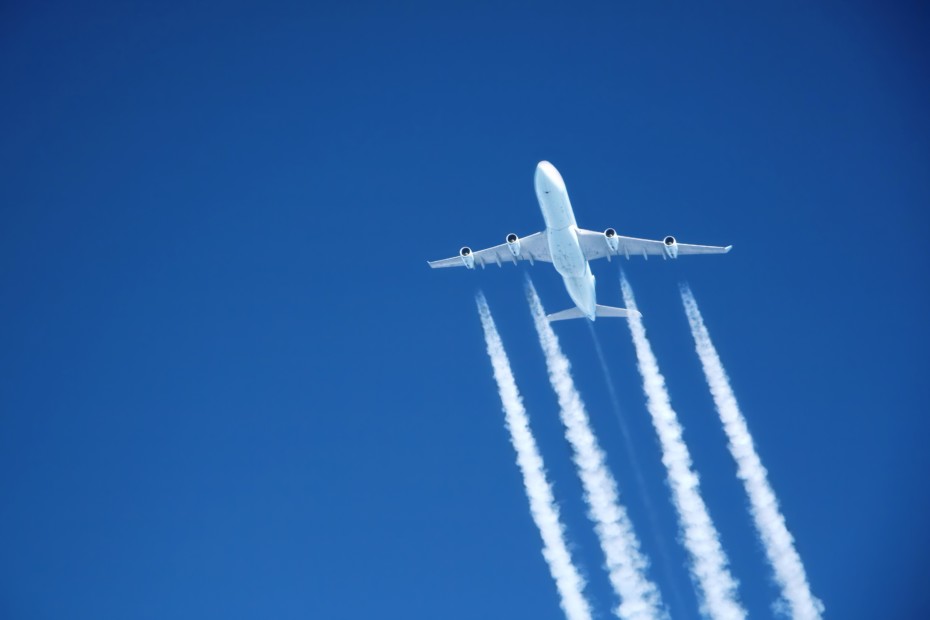
October is the McGill Office of Sustainability’s Transit Month, part of its Sustainability Monthly Challenges, inviting staff, students and faculty to track their daily commute. The objective is to scrutinize every aspect of sustainability – economic, environmental and social – in the hope of streamlining our lifestyle and everyday University operations in the most sustainable way.
But what about behaviours that go beyond our everyday habits? Take air travel, for example. Increasingly, we’re being told that air travel is very bad for the environment and, if we are serious about our commitment to sustainability, it should be avoided whenever possible.
But are there instances in which flying can actually compete with other modes of transport in terms of its environmental impact?
Walking the sustainability walk
A few months ago, Elena Bennett, associate professor at the McGill School of Environment & Department of Natural Resource Sciences, had to travel to Georgia for a meeting of the Resilience Alliance, an international social-ecology research network.

Instead of hopping on a plane as she normally would, Bennett and six students squeezed into a van and drove the nearly 2,000-km trip from McGill, as documented by the McGill Office for Sustainability in a video clip to kick-off its #BecauseIDidntFly campaign.
That 20-hour travel saga is a video guide to eco-friendliness, highlighting Bennett’s mindfulness about sustainability and the need we all have to reduce our carbon footprint.
And yet, this past summer, she and two colleagues from the University of British Columbia noted in an opinion piece published online, a few points might be worth pondering before jumping on the fast-climbing flight-shaming bandwagon.
The trio advocates being thoughtful and selective, and adopting a measured approach to a complex issue.
One of the main conclusions of the article is the surprising assertion that on a per-kilometre basis, flying can compete with other modes of transport in terms of fossil fuel consumption – in certain situations and given certain conditions.
The mode of transportation chosen can be less important than the distance travelled.
Long-haul flights more efficient than short trips
Bennett readily concedes that “it wasn’t a formal scientific study, we didn’t do any original research.” But they took to Twitter with their early findings, allowing aviation and other experts to weigh in and balance those findings with more accurate data.
In the end, they validated the notion that short-haul flights tend to be inefficient, while long-haul routes can be very efficient, particularly if the plane is full.
Taking a train in Europe, of course, is optimally eco-friendly and a practical way to travel. The lines are highly developed throughout most of the continent, tend to be high- or higher-speed, making fast international travel possible; and they are almost exclusively electric.
North American trains not always so efficient
North American trains, on the other hand, are usually diesel powered, slow and with a highly restricted network reach. The Adirondack train from Montreal to New York City, for instance, takes 11 hours to cover 600 km – compared to 48 minutes by plane. No business executive or sales rep would book that train. Many trains in Europe would cover the distance in two hours or less – pollution free.
So being selective, thoughtful and precise about travel choices is essential, said Bennett.
“The lowest emissions for planes overlap with the highest train emissions.”
Plane travel is “not always as outrageous as that – it’s not 10 times the amount of” alternative forms of travel.
A long-haul flight can be more sustainable than a big gas-guzzling car or SUV.
Careful consideration needed
Bennett said that she would not be able to emulate Greta Thunberg, the teenage Swedish environmental activist who arrived at the UN’s climate conference last month after crossing the Atlantic on a solar-powered racing-boat – nor would most people, if only for practical reasons.
But she does think hard – and often – about the costs in sustainability of frequent flying.
“Recently, I saw a New York Times article that looked at the impact our emissions will have on future generations’ ability to emit carbon. I have kids and it really hit home that every time I get on an airplane I’m using carbon emissions that belongs to them in a sense,” she said.
Need to be more forceful… and thoughtful
Cutting out flying altogether is not possible for most people. But there are other ways to compensate, she noted. Eat less meat – and none if possible; bundle trips like she has done in the past – combining two or three trips in one; and using technology more like video-conferencing, as she did recently for a presentation she did at a conference in Germany instead of travelling there as it was proposed to her.
But she urges balance and fairness. “I saw a sign at the climate march in Montreal that said ‘If your mouth is full of meat, shut up about climate change.’ No, no, no, no. Those sorts of statement get us nowhere,” she said. “We shouldn’t be shutting down conversation – we should be encouraging it – from everyone. We shouldn’t be putting limits on who is, and isn’t, allowed to express themselves when it comes to reducing our impact on the climate.”
“We do need to be more forceful, but we also need to be more thoughtful in what works for us all. We in academia need to be thinking about clever ways to do things differently.”
“My long-term self-interest is in leaving a more habitable planet for my kids.”
